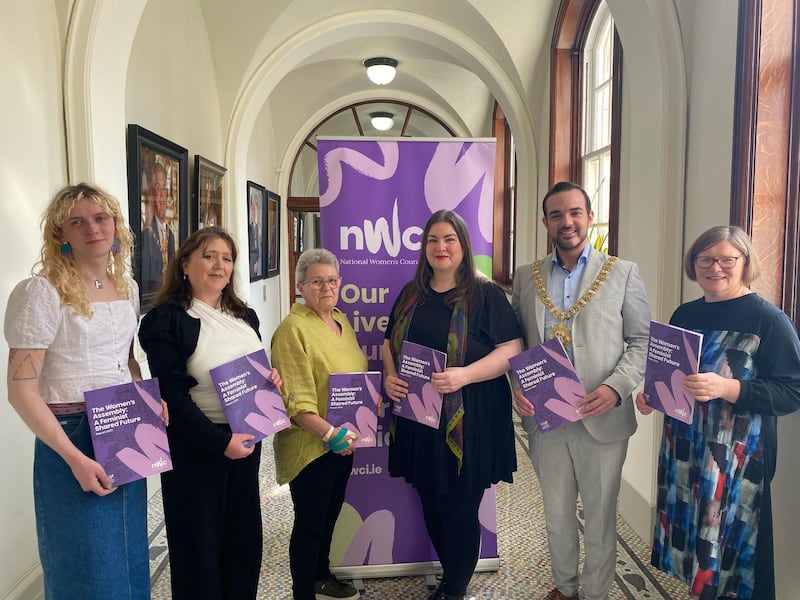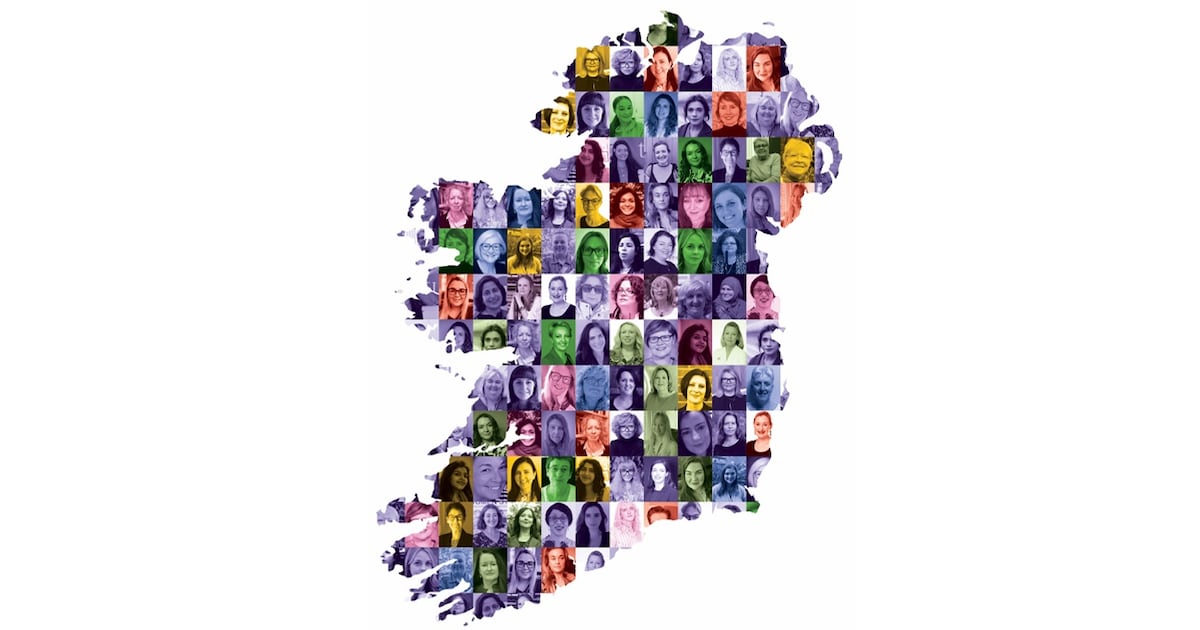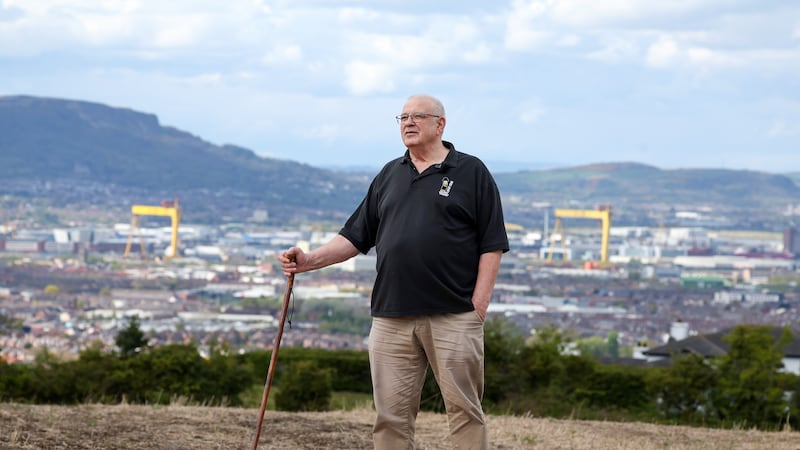IRELAND’S future must not be reduced to a border poll that ignores oppression and violence against women, a new report has said.
This was among the key demands published by the National Women’s Council (NWC), an island-wide organisation championing women’s voices across society.
Launched at Belfast City Hall on Tuesday, the report looked “beyond binary political debates” about whether Northern Ireland should remain part of the UK or join with the Republic.
Instead, it was argued that key issues for women on either side of the border – such as healthcare, childcare, economic justice and gender-based violence – were “sidelined” in constitutional debates.
 Launching a new report from the NWC at Belfast City Hall, pictured l-r; Alexa Moore, The Rainbow Project; Louise Bayliss, Society of Saint Vincent de Paul; Eileen Weir, Community Development Practitioner; Amanda Ferguson, Journalist; Lord Mayor Councillor Micky Murray; and Orla O’Connor, National Women’s Council.
Launching a new report from the NWC at Belfast City Hall, pictured l-r; Alexa Moore, The Rainbow Project; Louise Bayliss, Society of Saint Vincent de Paul; Eileen Weir, Community Development Practitioner; Amanda Ferguson, Journalist; Lord Mayor Councillor Micky Murray; and Orla O’Connor, National Women’s Council.
Citing the influence of partition as creating “two deeply conservative states,” the report said that gender-based violence became entrenched across the island “with patriarchal power structures reinforced by paramilitary groups, religious institutions or state actors keeping survivors silent and blocking their path to justice.”
Despite progress in recent years, both jurisdictions were still found wanting in providing adequate protection and resources for survivors of domestic abuse, sexual violence and coercive control.
Economic structures and “poor state policies” were also said to “trap women in abusive relationships” through housing insecurity, financial dependence, and inadequate social protections.
Sarah Mason, CEO of Women’s Aid Northern Ireland, said contributing to the discussions as part of the Women’s Assembly had been “a powerful experience.”
“In the north, we face some of the highest levels of femicide in Europe. We need to work together to change this and make the island a safe place for all women and girls.”
Nuala Toman from Disability Action Northern Ireland also spoke of the challenges facing disabled women to live and work independently.
“As Ireland looks to the future, the voices of disabled women must be at the forefront of progress. That means inclusive healthcare, economic justice, an adequate standard of living, freedom from violence, political representation, accessible housing, and digital innovation that leaves no one behind.
“Disabled women should not be an afterthought in policy; together we are leaders in shaping a more just, safe, and inclusive Ireland.”


